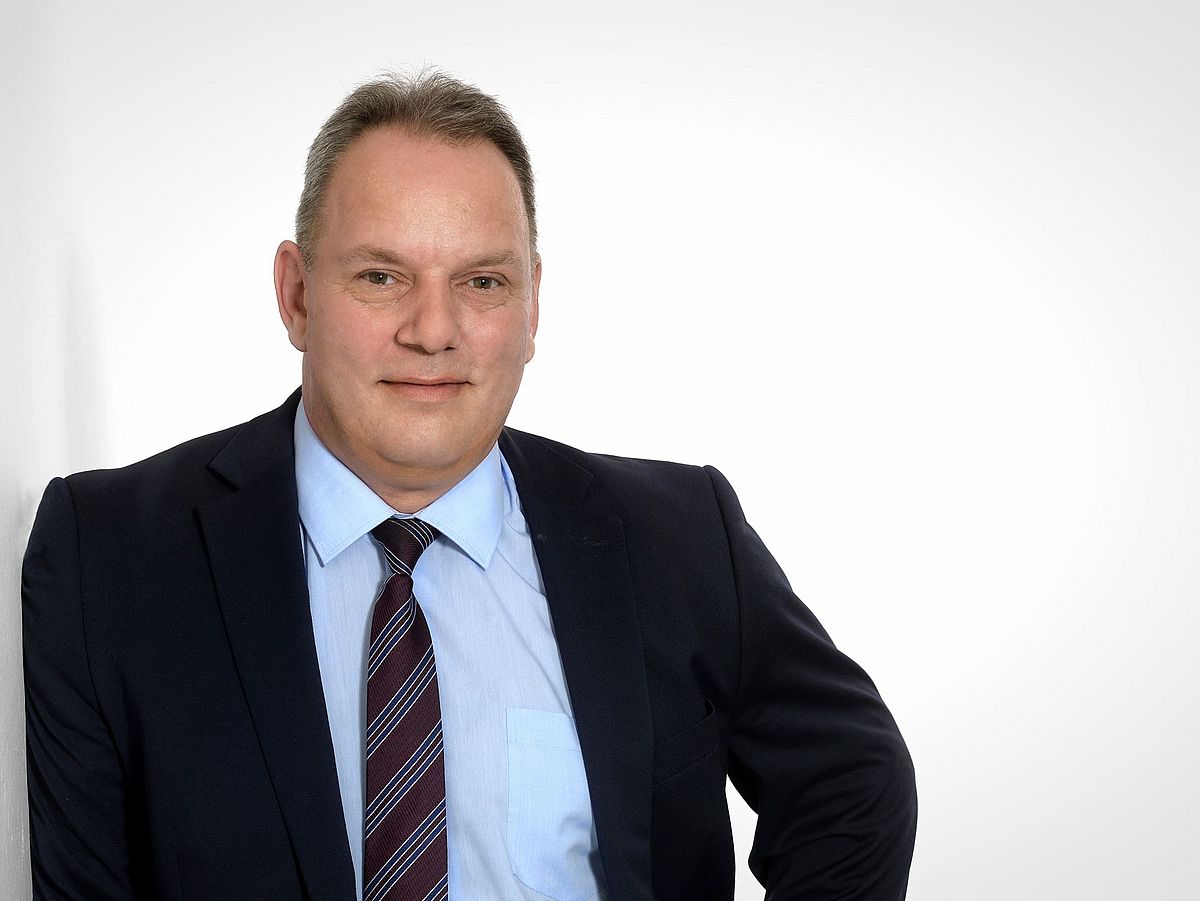An espresso with...Yves Nagel

Yves Nagel, born in 1968, began studyingProfessional Public Decision Making at the University of Bremen in 2015, graduating with a master's degree in 2019. He had previously worked for many years in the administration of the Free Hanseatic City of Bremen and since November 2021has been mayor of the Lower Saxony joint municipality of Harpstedt, around 30 km from Bremen.
Why did you decide to study at the University of Bremen?
It was a purely pragmatic decision. I had previously worked in Bremen’s civil service. This course of study was a stipend-based programme through which employees in the upper civil service could advance to a higher level. As it happens, I did so well in the entrance test that I received one of the stipends.
This part-time degree programme is rather unusual for the University of Bremen. How should one imagine it? Were you a bit exotic at UniBremen?
In our cohort there were 15 stipend holders, all of whom came from the public sector, and only one other fellow student who financed her studies herself. The stipend also gave us 180 hours of time off per semester, which is about 20 per cent of our working hours. The rest we had to do in our free time. That was already a considerable workload, but for me, having little free time was nothing new. We were actually quite isolated from the rest of the university. We had different lecture times, mostly en bloc from Thursdays to Saturdays, and we were in the Unicom building, on the outer edge of the campus. That being the case, we didn't really have anything to do with other students.
What was the most formative experience for you during your studies?
Interestingly, a professor told us right at the beginning that the lecturers were a bit afraid of us. We were all professionally experienced, seasoned people with an average age of 40 to 50 years, and had experience in our particular fields that went far beyond what a university professor would know from practice. Of course, we were also a bit nervous ourselves, because we had no idea what to expect, what it means to study for a scientific degree. So we had a lot of respect for each other. In the end, it was a very stimulating process and really different from a "classical" degree programme. We all had a completely different motivation, we all wanted to make a career leap and needed the degree for that. Accordingly, the participation, the punctuality, the appearance of the students was different than the usual.
What did you bring from your studies to your office as mayor?
A mayor is an elected official, so in that respect, the higher civil service grade was irrelevant. But decision management is about making the most effective decision as quickly as possible. In my day-to-day work, for example in staff management, I have to be able to act quickly and flexibly. Of course, the same goes for other areas, too. In that regard, the study programme is very helpful. I really don't regret a single minute of that time.
You have only been mayor of the Harpstedt joint municipality for a few months. Have your expectations of this office been met?
To be honest, my expectation was of course not that the corona pandemic would continue and that the Ukraine crisis would be added to it. The challenges are already very big. What I absolutely did not expect was that some of the things I know from the administration in Bremen are completely different here in Lower Saxony. A minor incident nicely illustrates this: When the district administrator was elected, the newspaper said that the previous office holder handed over his red pen to the new district administrator. In Bremen, the head of department always has a green pen and his deputy a red one. In any case, I had already bought green ink, which is now sitting around at home. But there are also more fundamental things: in Bremen, the Staff Representation Act is very extensive, but here the staff council does not sit together around the table as often. So of course, this means that I myself have to give more consideration to the welfare of the staff. And then there is the issue of public budget deficits. In principle, we are debt-free here and even have money to spare. People in Bremen dream of that.
Climate change, climate protection is one of the greatest challenges of our time. What can you do at the municipal level?
Quite a lot. By land area, the joint municipality of Harpstedt is the largest municipality in the Oldenburg district. We have a lot of wind energy generation, photovoltaics and also biogas. We are net electricity producers and can therefore feed into the grid four times what we consume as a municipality. And we are projecting even more wind farms.
For Bremen as a place, the university is very important. Does the idea of a “place for science” also resonate in the area around Bremen?
Yes, in many different ways. We often sit at the same table with Bremen in the Bremen-Lower Saxony association of municipalities, and it’s noticeable that the representatives from Bremen often have academic know-how, and that is certainly stimulating, even if what’s done in Bremen is not always directly applicable in a rural community. Quite a few young people leave to study at Uni Bremen. Some then move to Bremen because in our area, the transport connections are not optimal. So we also lose young people. We are concerned about this, because we are of course feeling the effects of demographic change in the countryside. But a not insignificant number of people are moving from Bremen to our region, and they bring a mentality with them that is good for us here.
If you are interested in studying decision management, you can find more information here.
Link: www.uni-bremen.de/emma

